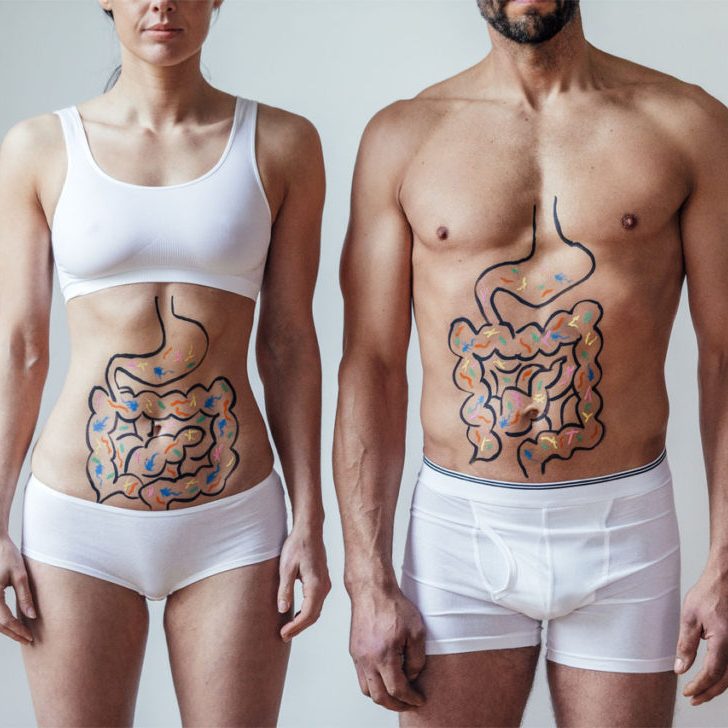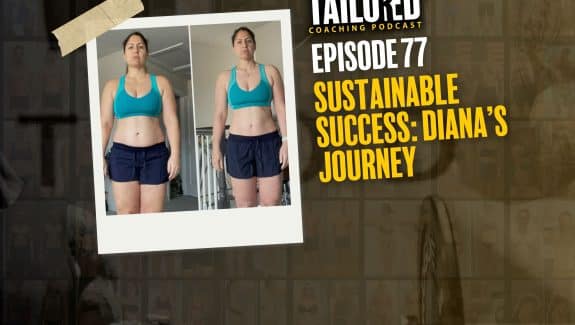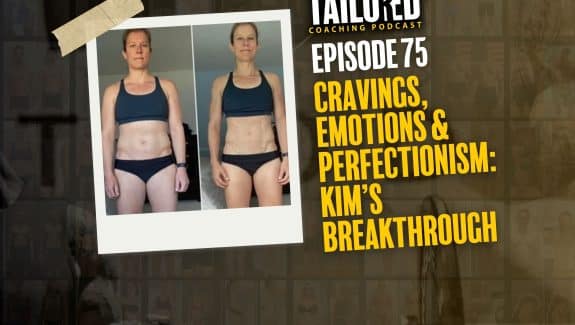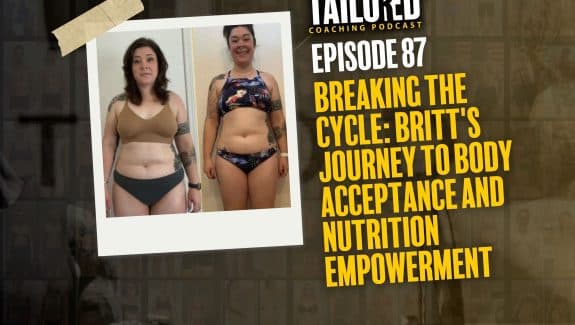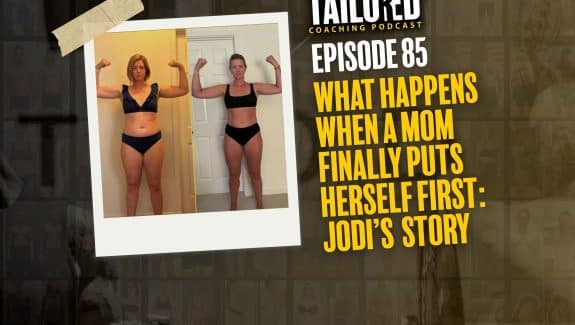We covered probiotics a few weeks ago, which just barely scratched the surface of gut health.
Gut health is a pretty broad term and one that is gaining popularity recently due to growing research about the important role your gut plays in overall health and wellness.
Gut health encompasses your immune system, your digestive system, and the overall connection to the rest of the body. Hormones, bacteria, brain fog, inflammation, disease… it can all be connected back to the gut.
Your gut’s job starts with the various organs that digest food and convert it into energy and absorb the necessary nutrients that we need to function. But that is just the beginning! The gut also influences immunity, mental health, fat loss, detoxification, and can even determine if we develop food sensitivities.
In addition to processing and absorbing food, your gut acts as your second brain and your first line of defense against disease.
Over 90% your body’s serotonin, 50% dopamine, and about 80% of your body’s immune cells live in your gut. This means that if you have an unhealthy gut, you’re not only at risk for uncomfortable digestion, but also poor mental health and a weak immune system.
Gut health is so much more than just digestion. Maintaining the health of your GI tract through proper diet and lifestyle is key for overall health and wellbeing.
The Gut-Brain Connection

Have you ever heard people say, ‘Go with your gut?’ Well, there’s actually science behind that popular saying.
While your GI system is the primary site for taking in nutrients, it also has its own nervous system known as the Enteric Nervous System (ENS). The ENS is sometimes called the “second brain” because it can operate autonomously and also communicates with the Central Nervous System.
The neurons of the ENS control how food moves through the digestive system and can alter responses depending on different factors such as bulk and nutrient composition of food.
The ENS also uses over 30 neurotransmitters like dopamine and serotonin, the “feel good” chemicals, which is why gut health has been linked to mood and mental health.
According to the American Psychological Association, 95% of the body’s supply of serotonin is produced by gut bacteria. As you may know, serotonin is a neurotransmitter that influences mood, cognition, memory and more. Poor gut health can mean low serotonin levels, which have been linked to depression.
It’s no wonder so many people trust their ‘gut feeling’ and why an irritated gut can affect your mood and mindset.
The Gut Microbiome
If we’re going to dive more into gut health, we need to talk about the microbiome. Your gut microbiome is the bacteria, fungi, and other microorganisms living in your digestive tract.
These trillions of critters that create the ecosystem in your gut not only digest your food and absorb nutrients, but also impact fat loss, hormones, and inflammation.
For example, some scientists suggest that an individual’s specific gut bacteria may influence their susceptibility to weight gain and obesity. Certain genetic dispositions to weight gain can either be amplified or suppressed by your environment and diet, which majorly affect your gut bacteria.
Hormones, like cortisol, can also be influenced by the gut microbiome. One study published in the journal Psychopharmacology in 2014 found that boosting healthy bacteria in the gut may be effective for reducing stress and anxiety. They found that those who took prebiotics had reduced waking cortisol (stress hormone) levels and more easily ignored negative stimuli. Gut health and mindset boost!
Even inflammation can start in the gut. If you eat a diet high in processed grains and sugars, the gut can become inflamed. Since about 80% of your immune system resides in your gut, a poor diet can lead to a weakened immune system and open you up to the potential for skin irritations, mood swings, fatigue, hormone imbalance, and chronic inflammation.
Now you know how important your gut is to your overall health, but what power do you have to change your gut microbiome? Fortunately, A LOT, because your diet and lifestyle greatly impact the bacteria in your gut.
Do You Have a Gut Issue?
A healthy gut can be loosely defined as regularity in your bowel movements, having glowing skin and energy to tackle your day, and also the ability to take in all the nutrients in the wonderful food available to us.
You probably already know if you have GI issues or not, but here are some questions to ask yourself if you’re unsure.
- Do you have irregular bowel movements? Or rotating bouts of constipation and diarrhea?
- Do you experience bouts of burping or acid reflux?
- Do you have skin issues/sensitivities?
- Do you frequently eat high sugar foods and/or processed foods?
- Have you taken several courses of antibiotics in a short period of time?
- Are you sensitive to dairy and gluten?
- Do you commonly have brain fog and low energy?
- Have you ever been diagnosed with IBS or Hashimoto’s?
If you answered yes to any of these, you should consider taking action to improve your gut health. And that means more than just popping a probiotic pill or eating some yogurt.
Common Digestive Issues
While everyone is different, has a different gut microbiome, and different digestive sensitivities, two common digestive issues are gut dysbiosis and leaky gut.
→ Gut Dysbiosis
An unbalanced gut microbiome is more common today thanks to the Standard American Diet (SAD). SAD is a diet high in processed foods, sugar, and chemicals, while being low in nutrients. This can cause bacterial overgrowth in the gut and an imbalance of your gut microbiome.
Like we mentioned earlier, we have trillions of bacteria in our gut. Some bacteria are beneficial, some are pathogenic, and some are commensal (neutral when in “normal” amounts). Dysbiosis is the overgrowth of certain harmful bacteria, leading to an imbalance in gut flora. These overgrown bacteria can decrease digestive enzymes, release toxins that were meant to be excreted, and more.
Examples of gut dysbiosis include small intestinal bacterial overgrowth (SIBO) and candida overgrowth.
- SIBO can cause pain, cramps, diarrhea, and can lead to malnutrition. SIBO is not yet well understood and must be confirmed through testing by your health care professional.
- Candida is a yeast that aids in digestion and nutrient absorption, but can over-produce and cause sugar and carb cravings, chronic fatigue, digestive issues, and even skin problems.
Probiotics, fermented foods, and decreasing potentially gut-harming medications can help treat gut dysbiosis, depending on the severity of the issue.
Gut dysbiosis can be temporary and as mild as a stomach ache or it can be a full blown infection. If you are experiencing severe symptoms, please reach out to your health care professional for additional testing.
→ Leaky Gut
Leaky gut is not technically a diagnosed condition, but rather something that occurs when toxins, infections, and/or stress cause breakage in your intestinal wall, allowing bacteria and toxins from the gut leak out into the bloodstream. This can lead to soreness, brain fog, gas, bloating, IBS, and food sensitivities.
There isn’t much concrete research on leaky gut, forcing doctors to work in a sort of gray area with this condition to figure out what’s really causing the leakage. Possible causes include food intolerances, medications, parasites, or infections.
If left untreated, leaky gut can lead to autoimmune disease. If you think you might have a leaky gut, consider removing common inflammatory foods (see elimination diet below), adding digestive enzymes and/or probiotics, and take the time to heal your gut through diet and lifestyle changes.
Improving Gut Health
The first step to improving your gut health is finding the root cause of your digestive issues.
Do you stuff your face when you eat or “inhale” your food? How much sugar do you eat each day? Do you frequently take NSAIDs (like ibuprofen) or antibiotics?
These are some good questions to start with to try and find the root cause of your gut issues.
Other common causes of GI distress include:
- A nutrient-poor diet
- Chronic stress
- Your body’s response to stress takes energy away from digestion
- Eating various genetically modified foods
- Some GMOs contain their own insecticide, Bt-toxin, which has been suggested to cause leaky gut in humans
- Consumption of foods with high pesticide/herbicide spraying
- See foods to avoid HERE
If you want to heal your gut, the first thing to do is find your triggers and remove them. For most people, common triggers are alcohol, dairy, gluten, and sugar. Other common triggers might be GMOs, nightshades, eggs, NSAIDs, and hormonal birth control.
Removing these potential irritants will force you to primarily eat foods that grew from the ground, walked the ground, or swam in the seas. This is very similar to a paleo-style diet and is a great tool to use to find what exact foods are causing your digestive issues.
To take it one step further, you may want to try an elimination diet.
Elimination Diet
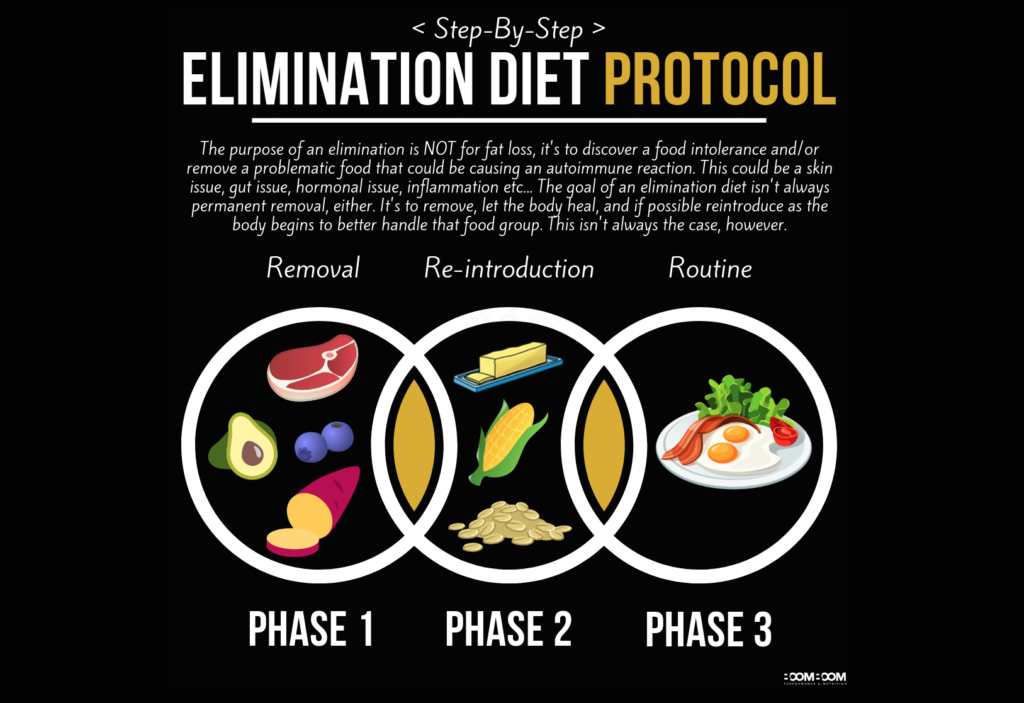
Anyone can do an elimination diet if they have gut issues and want to find the root cause/trigger. We recommend committing to at least 4-6 weeks for your elimination diet and following these phases:
- Preparation Phase: Clear your kitchen of any processed foods and prep the foods you will be eating during your elimination diet.
- Elimination Phase: Remove common inflammatory foods from your diet. This includes gluten, corn, dairy, peanuts, sugar, eggs, caffeine, alcohol, nightshades, inflammatory oils (canola, soy), and fermented foods.
- Reintroduction Phase: Add in 1 food from the above list, little by little, over 3 days. Wait two more days and see how your body responds. No issues? Five days after that initial reintroduction, repeat with another food. Slower is better here. Listen to your body and take notes so you can narrow down your trigger(s).
- Post-Elimination Phase: Hopefully during reintroduction you were able to narrow your gut irritation down to one or a few foods. Keep those foods permanently out of your diet and keep healing your gut through a nutrient-rich diet.
Maintain Your Gut Health
The easiest and most efficient way to take care of your gut is with your lifestyle and diet. Stick to these general rules to keep your gut healthy and happy:
- Get enough sleep and work on reducing stress in your life. This allows your body to heal and dedicate proper energy to your GI tract and digestion.
- Consume plenty of whole, nutrient dense foods like dark, leafy greens, fresh fish, and organic meats. Avoid processed foods with long ingredient lists and those that are high in added sugars.
- Pay attention to your body and notice when you have GI upset. Look at your food logs from that day or the day before and see if you can link your symptoms to a particular food. Learn from your body.
- Last but not least, CHEW your food! Digestion begins in your mouth. Make sure to chew your food at least 10-30 times per mouthful. You’ll enjoy your meal more thoroughly and also help our your gut!
Sources & Further Reading:
- Nutrition Coaching Institute – Gut Health Master Class
- “Prebiotic intake reduces the waking cortisol response and alters emotional bias in healthy volunteers.” Psychopharmacology, 2015, Volume 232, Number 10, Page 1793
Kristin Schmidt et. al. https://link.springer.com/article/10.1007%2Fs00213-014-3810-0 - “The gut microbiome: How does it affect our health?” https://www.medicalnewstoday.com/articles/290747.php
- “Substantial production of dopamine in the human gastrointestinal tract.” https://www.ncbi.nlm.nih.gov/pubmed/9360553
- “Identification of a Rhythmic Firing Pattern in the Enteric Nervous System That Generates Rhythmic Electrical Activity in Smooth Muscle” http://www.jneurosci.org/content/38/24/5507
- “Cytotoxicity on human cells of Cry1Ab and Cry1Ac Bt insecticidal toxins alone or with a glyphosate-based herbicide.” https://www.ncbi.nlm.nih.gov/pubmed/22337346


